
As urbanization accelerates, the demand for residential complexes like apartments is on the rise. With this increase comes the need for efficient and sustainable solutions for wastewater management. Sewage Treatment Plants (STPs) are crucial in ensuring that wastewater generated by apartment complexes is treated effectively before being released into the environment. In this blog, we will explore what STPs are, why apartments need them, the factors to consider when choosing an STP, and why SUSBIO is the best choice for your apartment’s sewage treatment needs.
What is a Sewage Treatment Plant (STP)?
A sewage treatment plant (STP) is a facility designed to treat the wastewater generated by residential, commercial, and industrial establishments, helping to address domestic sewage water pollution The primary purpose of an STP is to remove contaminants from the wastewater, making it safe for discharge or reuse. The treatment process typically involves several stages, including primary, secondary, and tertiary treatment, where physical, biological, and chemical processes are used to remove solids, organic matter, and harmful microorganisms.
Why Apartments Need Sewage Treatment Plants
Apartments generate significant amounts of wastewater daily from various sources such as kitchens, bathrooms, and laundry. Without proper treatment, this wastewater can lead to environmental pollution, health hazards, and legal issues. Here are some reasons why apartments need sewage treatment plants:
Environmental Responsibility: Treating wastewater before discharging it into the environment helps protect natural water bodies from pollution. This is especially important in urban areas where untreated sewage can lead to the contamination of local water sources.
Legal Compliance: Many local and state regulations require residential complexes to have their own sewage treatment systems to manage wastewater. Failure to comply with these regulations can result in hefty fines and penalties Additionally, incorporating well water treatment systems ensures that water from wells meets the necessary safety standards and contributes to overall regulatory compliance.
Health and Safety: Untreated sewage can harbor harmful pathogens that pose serious health risks to residents and the surrounding community. An STP ensures that the wastewater is treated to a level that is safe for discharge or reuse.
Sustainable Water Management: Treated wastewater can be reused for non-potable purposes such as gardening, flushing toilets, and car washing, reducing the overall demand on freshwater resources.
Factors to Consider While Choosing an STP for Apartments

When selecting an STP for your apartment complex, it’s essential to consider several factors to ensure that the system meets your specific needs and complies with local regulations. Here are some key factors to keep in mind:
Capacity: The STP should be able to handle the daily wastewater load generated by the apartment complex. This is typically measured in terms of liters per day (LPD). It’s crucial to choose an STP with the right capacity to avoid overloading the system.
Space Availability: The available space in the apartment complex will determine the type and size of the STP. Prefabricated or packaged STPs, like those offered by SUSBIO, are ideal for apartments with limited space.
Treatment Efficiency: The STP should be capable of treating the wastewater to the required standards set by local authorities. This includes removing solids, reducing Biological Oxygen Demand (BOD), and ensuring the treated water is safe for discharge or reuse.
Energy Consumption: Energy efficiency is another critical factor to consider. An energy-efficient STP will help reduce operational costs and minimize the environmental impact.
Maintenance and Operation: The STP should be easy to operate and maintain. Regular maintenance is essential to ensure the system functions optimally and to prevent any breakdowns.
Legal Regulations and Compliance for Residential Buildings Regarding Sewage Treatment Plants (STPs)
Adhering to legal regulations for sewage treatment plants for residential buildings is crucial for environmental sustainability and to avoid legal issues. Key regulations include:
Regulatory Framework:
- CPCB Guidelines: National standards for wastewater treatment and effluent discharge.
- State Pollution Control Boards (SPCBs): Local standards must also be followed.
- Water (Prevention and Control of Pollution) Act, 1974: Regulates the discharge of untreated sewage into water bodies.
Importance of Compliance:
- Prevents Water Pollution: Ensures safe discharge of treated water.
- Promotes Health & Safety: Reduces risks of waterborne diseases.
- Supports Sustainability: Encourages water reuse and eco-friendly practices.
- Avoids Legal Penalties: Prevents fines and operational shutdowns.
- Enhances Property Value: Boosts reputation among eco-conscious buyers.
Compliance Considerations:
- Meet effluent quality standards for BOD, COD, TSS, and pH.
- Ensure the sewage treatment plant for residential buildings is designed to fit the building’s size and wastewater load.
- Proper sludge management and safe disposal are mandatory.
- Regular monitoring and reporting may be required by local authorities.
By ensuring sewage treatment plants for residential buildings comply with these regulations, residential complexes can contribute to environmental protection, public health, and avoid costly penalties.
Types of Sewage Treatment Plants (STPs) for Apartments
- Activated Sludge Process (ASP)
- How it works: Uses aeration tanks to treat wastewater with microorganisms.
- Pros: Effective for large buildings, low energy consumption, reliable.
- Cons: Requires large space, high maintenance, sludge disposal needed.
- Sequential Batch Reactor (SBR)
- How it works: Treats wastewater in cycles (fill, aerate, settle, decant).
- Pros: Compact, handles varying loads, low operational cost.
- Cons: Slower treatment, maintenance required, not ideal for high flow rates.
- Submerged Aerated Filter (SAF)
- How it works: Wastewater flows through a submerged bio-media with aeration.
- Pros: Space-efficient, low energy consumption, easy operation.
- Cons: Requires maintenance, clogging risk, not for high flow rates.
- Membrane Bioreactor (MBR)
- How it works: Combines biological treatment and membrane filtration.
- Pros: High-quality effluent, compact, low sludge production.
- Cons: High installation cost, regular maintenance, higher energy use.
- Moving Bed Biofilm Reactor (MBBR)
- How it works: Uses floating plastic carriers for microorganisms to treat wastewater.
- Pros: Compact, handles varying loads, low maintenance.
- Cons: Requires monitoring, potential clogging, needs space for the system.
Summary
- For large apartments: ASP is effective but requires more space and maintenance.
- For medium-sized apartments: SBR is compact and cost-effective.
- For small apartments: SAF or MBBR are ideal due to their compact size and efficiency.
Factors Influencing the Cost of STPs for Apartments
1. Type of Treatment Technology
- MBBR: Advanced, smaller footprint, lower operational cost.
Cost: INR 15 Lakhs to INR 50 Lakhs. - SBR: Cost-effective, flexible for varying wastewater flows.
Cost: INR 10 Lakhs to INR 35 Lakhs. - RO: High-quality water, more expensive due to energy consumption and membrane replacement.
Cost: INR 20 Lakhs to INR 80 Lakhs.
2. Plant Size (KLD Capacity)
- Small (Up to 10 KLD): For small buildings or low wastewater generation.
Cost: INR 5 Lakhs to INR 15 Lakhs. - Medium (10 KLD to 50 KLD): For medium-sized complexes.
Cost: INR 15 Lakhs to INR 35 Lakhs. - Large (Above 50 KLD): For large complexes or societies.
Cost: INR 30 Lakhs to INR 80 Lakhs.
3. Installation Complexity
- Site Preparation: Excavation or structural changes increase costs.
- Type of Plant: Modular STPs are cheaper and easier to install than custom-built plants.
Additional Costs: INR 2 Lakhs to INR 10 Lakhs.
4. Geographic Location
- Urban Areas: Higher costs due to demand for advanced tech and premium services.
- Rural Areas: Lower costs due to local resources and labor.
- Regional Differences: Varying raw material and regulatory costs across regions.
Example Price Ranges for the Cost of Sewage Treatment Plant for Apartments
STP Size | Estimated Cost Range |
Small (Up to 10 KLD) | INR 5 Lakhs to INR 15 Lakhs |
Medium (10-50 KLD) | INR 15 Lakhs to INR 35 Lakhs |
Large (Above 50 KLD) | INR 30 Lakhs to INR 80 Lakhs |
Why Choose SUSBIO for Your Apartment's STP Needs
SUSBIO is a leading manufacturer of sewage treatment plants (STPs) in India, offering innovative and sustainable solutions for wastewater management. Here’s why SUSBIO stands out as the best choice for your apartment’s sewage treatment needs:
-
Advanced Technology: SUSBIO employs state-of-the-art technology in its STPs, ensuring efficient and effective treatment of wastewater. Our systems are designed to meet the highest standards of performance and reliability.
-
Custom Solutions: We understand that each apartment complex has unique requirements. That’s why SUSBIO offers customized STP solutions tailored to meet the specific needs of your apartment, whether it’s a small complex or a large residential community.
-
Space-Saving Designs: Our packaged sewage treatment plants are compact and space-efficient, making them ideal for apartment complexes with limited space. These prefabricated systems are easy to install and require minimal on-site construction.
-
Energy Efficiency: SUSBIO STPs are designed to be energy-efficient, reducing operational costs while ensuring optimal performance. Our systems are engineered to minimize energy consumption, making them an environmentally friendly choice.
-
Reliable Support: With SUSBIO, you can count on comprehensive support, from system design and installation to ongoing maintenance and servicing. Our team of experts is dedicated to ensuring that your STP operates smoothly and efficiently.
How SUSBIO is Helping Apartments with Sewage Treatment
SUSBIO has been instrumental in providing sustainable sewage treatment solutions to apartment complexes across India. Our STPs are designed to handle the specific challenges faced by residential communities, ensuring that wastewater is treated effectively and in compliance with local regulations. By choosing SUSBIO, apartment owners and builders can rest assured that they are investing in a high-quality, reliable, and sustainable solution for their sewage treatment process needs. This ensures not only compliance but also long-term environmental benefits.
Conclusion
In conclusion, sewage treatment plants (STPs) are essential for managing wastewater treatment in apartment complexes, ensuring environmental protection, legal compliance, and the health and safety of residents. When choosing an STP for your apartment, it’s crucial to consider factors such as capacity, space availability, treatment efficiency, energy consumption, and ease of maintenance. These considerations are also vital in the broader context of industrial water treatment, where effective systems ensure both regulatory compliance and sustainable practices.
SUSBIO stands out as the best choice for apartment STPs, offering advanced technology, customized solutions, space-saving designs, energy efficiency, and reliable support. With SUSBIO, you can ensure that your apartment’s wastewater is treated to the highest standards, including secondary wastewater treatment, contributing to a cleaner and healthier environment. SUSBIO’s systems provide effective liquid waste treatment, ensuring thorough and responsible treatment of wastewater. Choose SUSBIO for your sewage treatment plant needs and experience the benefits of working with a leading provider in the industry including efficient chemical wastewater treatment.


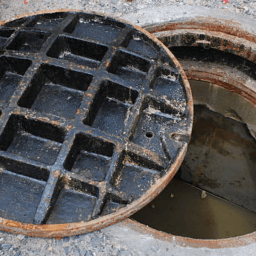

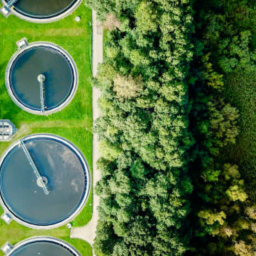
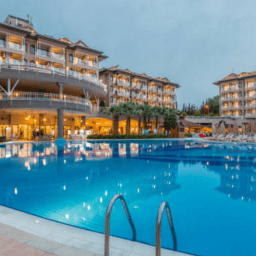
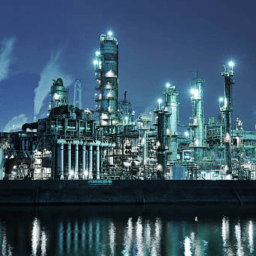
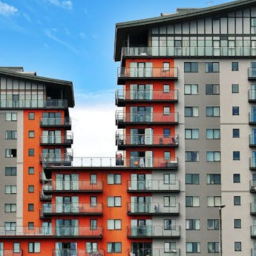
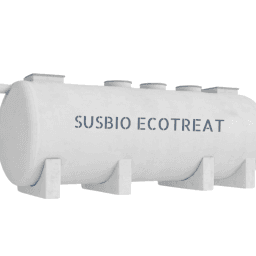
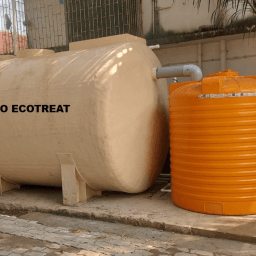
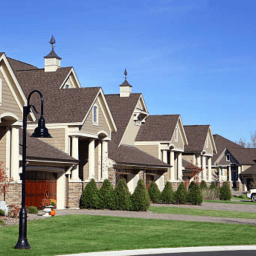
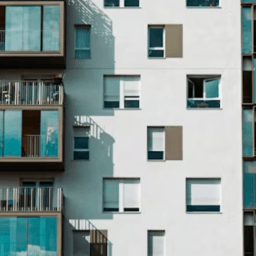


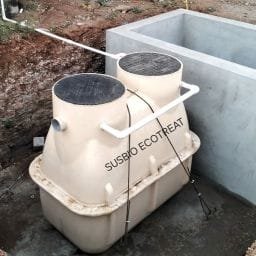
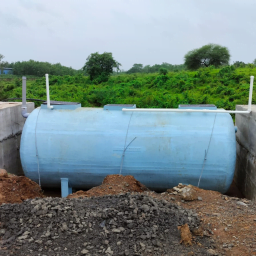
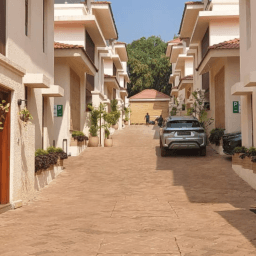

[…] the right sewage treatment plant for an apartment complex involves assessing multiple factors, from capacity and treatment technology to operational […]